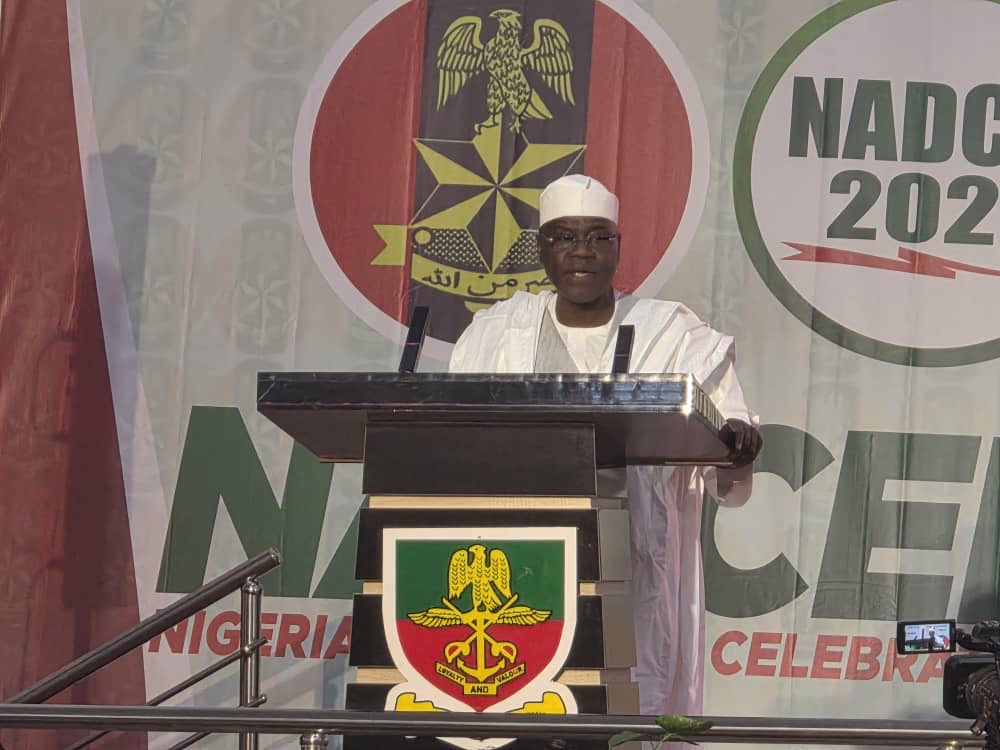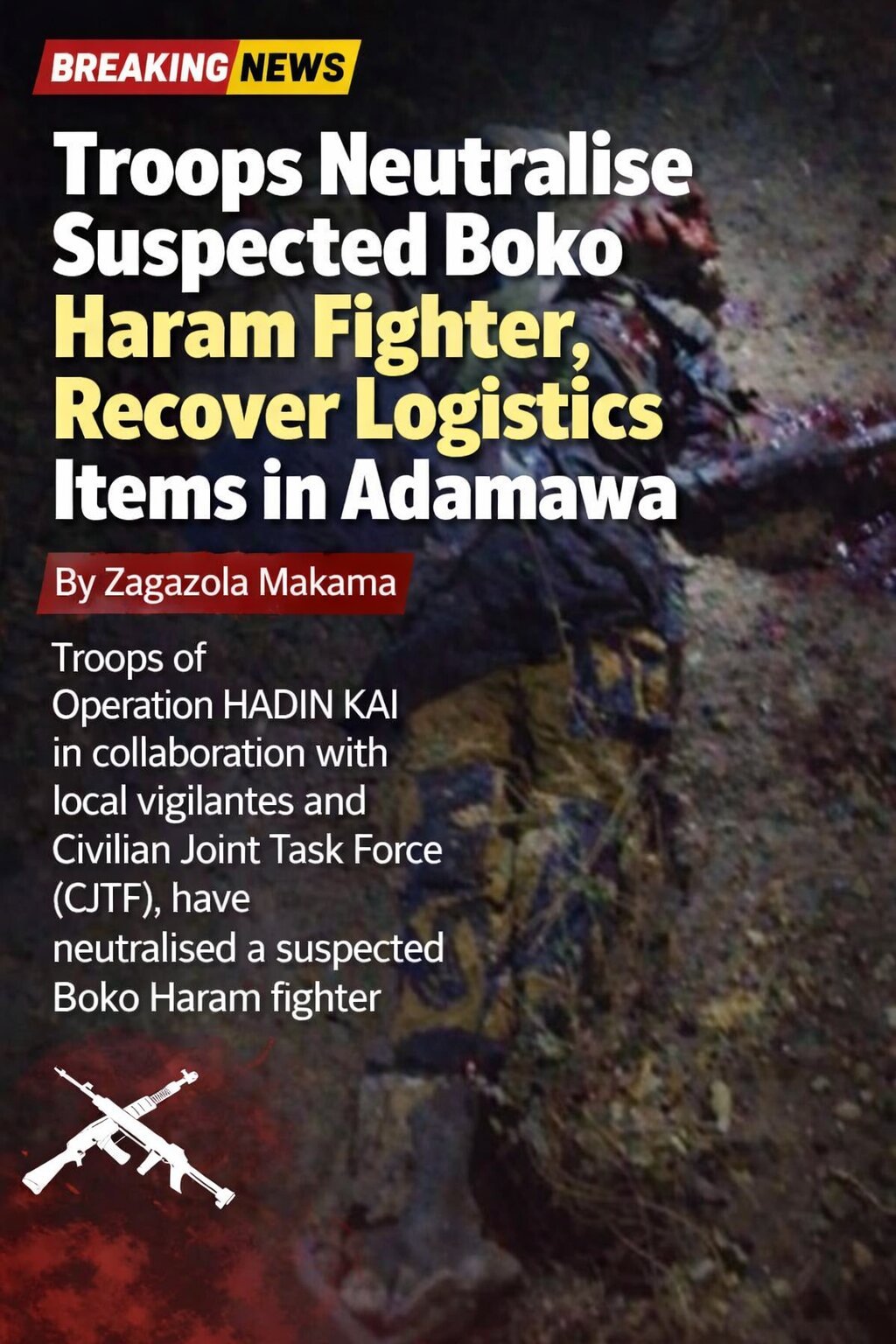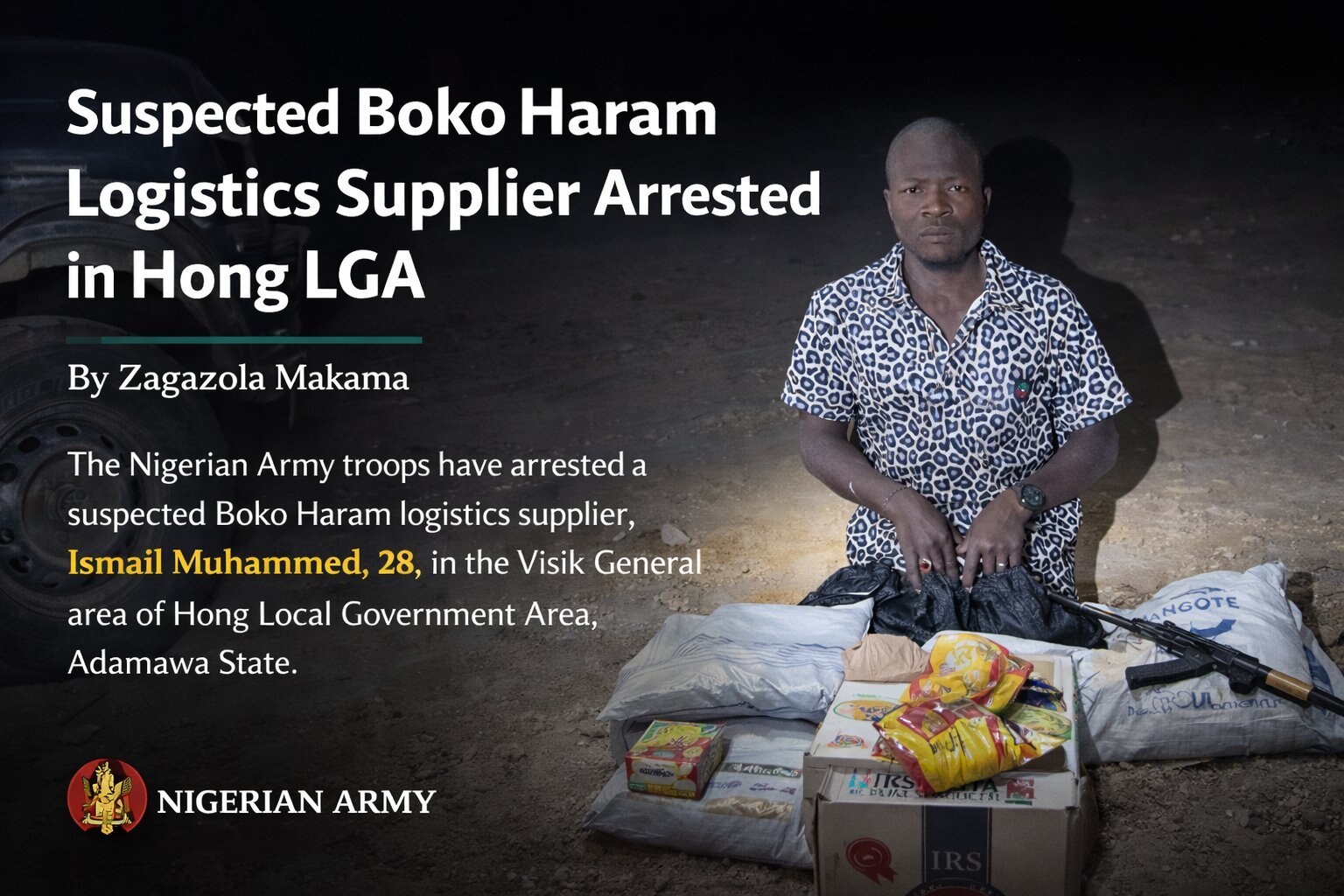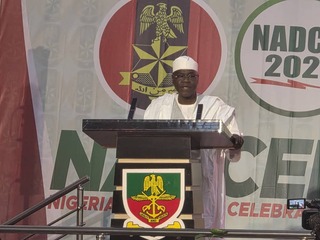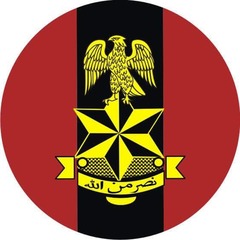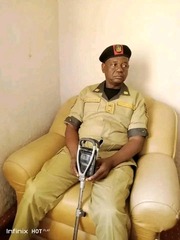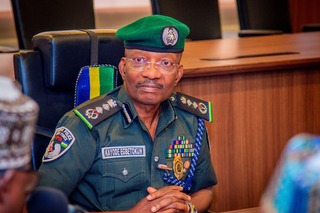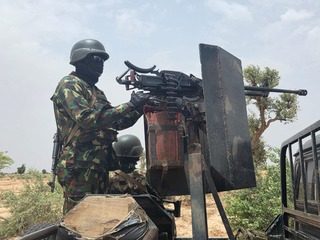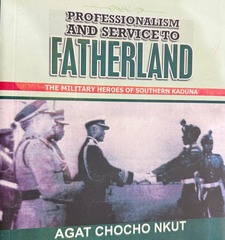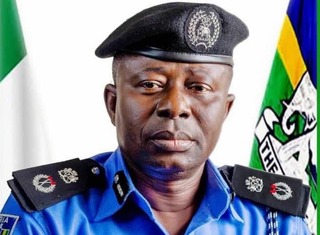Nigerian Army’s future lies in soldier-first transformation — Gen. Faruk Yahaya
By: Zagazola Makama
Former Chief of Army Staff, Lt.-Gen. Faruk Yahaya (rtd), says that the future relevance, resilience, and operational success of the Nigerian Army will depend on the effective implementation of the “soldier-first” concept a strategic doctrine that places the welfare, training, morale, and development of soldiers at the core of institutional transformation.
Yahaya made this known in Kaduna on Saturday while delivering the keynote lecture at the 2025 Nigerian Army Day Celebration (NADCEL), held at the Nigerian Defence Academy (NDA), with the theme: “Developing the Soldier-First Concept: Imperative for Nigerian Army’s Transformation Drive.”
The former Army chief said that the changing nature of warfare from conventional battles to asymmetric threats such as terrorism, cyber warfare, and information operations required a complete cultural reorientation of the Nigerian Army, one that must begin with the soldier.
“The transformation of the Nigerian Army cannot be achieved through weapons and platforms alone. It must begin with the soldier. The ‘soldier-first’ concept is about building a highly motivated, disciplined, and well-catered force, equipped to defend Nigeria in complex and uncertain environments,” Yahaya said.
Yahaya emphasized that a professional and combat-effective military must begin with prioritizing the welfare of its personnel. He described soldier welfare as encompassing quality healthcare, housing, family support, education for dependents, mental health support, fair deployment systems, and timely payment of entitlements.
“If the Army must transform, then the welfare of soldiers cannot be secondary. It must be central. A soldier who knows that his wellbeing, his family, and his future are secure will fight not just with courage, but with conviction,” he said.
Yahaya praised current efforts by the Army leadership in expanding barracks infrastructure, rehabilitating military hospitals, and ensuring better access to healthcare through partnerships with civil hospitals and the Armed Forces Health Insurance Scheme.
He also commended the establishment of more Army schools and welfare packages for widows of fallen heroes, noting that education and family support were critical elements of long-term morale management.
“Education support for soldiers’ children, skills acquisition for spouses, and regular interaction with the families of fallen heroes help build a strong institutional bond. These are not charity; they are strategic welfare investments that strengthen military cohesion,” Yahaya added.
While emphasizing welfare, the former Army chief was quick to note that the soldier-first concept also demanded high levels of discipline, loyalty, and personal responsibility from all personnel.
“This concept must not be mistaken for laxity. The soldier must understand that he is being empowered to serve better, not to serve less. With more welfare comes more responsibility,” he said.
He stressed that the core values of the Nigerian Army loyalty, selfless service, integrity, and courage must continue to guide soldier conduct, especially in joint operations and internal security engagements.
Yahaya warned that Nigeria’s future operational environment would become more unpredictable, with increasing threats from non-state actors, cyber attacks, disinformation, climate-related crises, and transborder terrorism.
He said the Army must continue to adopt a capability-based approach to planning — one that tailors resources, doctrine, and personnel competencies to the nature of evolving threats.
“Tomorrow’s battlefield will be digital, asymmetric, and multi-dimensional. We must prepare our soldiers physically, mentally, and intellectually. That begins with how we treat them today,” Yahaya stressed.
Highlighting the role of past and present Army leadership in building the institution, Yahaya noted that every generation of commanders contributed to the structure and values of the Army, particularly in welfare policies and doctrinal reforms.
He acknowledged the strategic leadership of the current Chief of Army Staff, Lt.-Gen. Olufemi Oluyede, whom he praised for consolidating on reforms, deepening civil-military relations, and enhancing troop motivation through a disciplined command philosophy.
“The Nigerian Army today is not where it was five or ten years ago and the difference is in the leadership’s emphasis on soldiers’ welfare. From post-service benefits to mental health advocacy, the soldier-first idea is becoming institutionalised,” he said.
Yahaya appealed for more budgetary support, political will, and inter-agency coordination to sustain welfare-focused reforms in the military.
“A soldier that sleeps hungry, fights without certainty of his family’s safety, or doubts the sincerity of leadership cannot deliver national security. The Nigerian Army is only as strong as its weakest soldier and it is the duty of leadership to ensure there are no weak links,” he concluded.
The lecture drew participation from senior military officers, cadets, defence scholars, and civil society representatives, as part of events commemorating NADCEL 2025.

